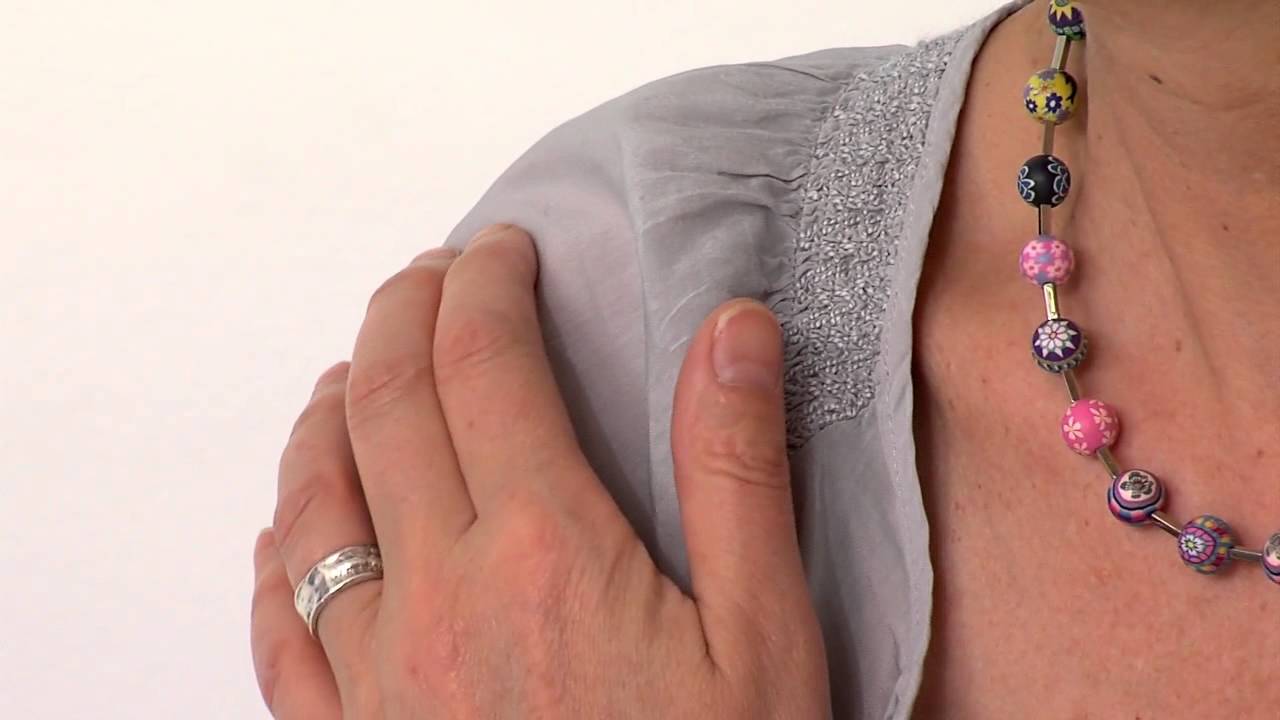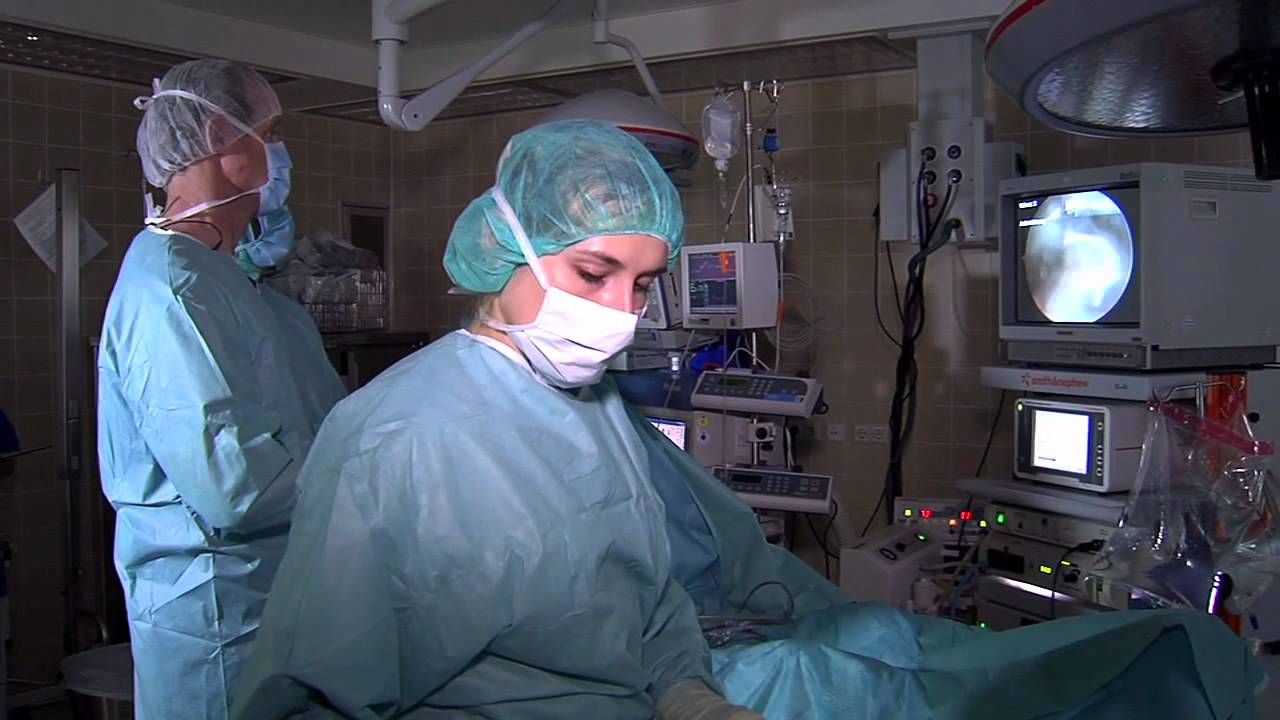
Tendon Tear - Rupture Rotator Cuff - Rupture Supraspinatus Tendon - Surgery Shoulder Rotator Cuff Tear
The tendons surrounding the shoulder joint, the so-called rotator cuff, are heavily used throughout life, and accordingly they undergo serious wear and tear. The consequences are that due to a possibly already existing damage, even everyday stress on the shoulder can lead to a tear of a tendon. A torn tendon in the shoulder does not heal by itself. On the contrary; a tendon rupture becomes larger over time. Only early diagnosis guarantees optimal treatment success.
Causes: Tendon tear shoulder / rupture rotator cuff
The tendons surrounding the shoulder may tear as a result of an acute injury such as an accident or a fall on the arm or a rupture may be caused by chronic wear and tear. Mostly, however, a pre-existing, chronic degeneration of the tendons is the main reason for a tendon rupture. With a previously damaged tendon, even everyday activities can sometimes be sufficient to cause a partial or complete tear.
Responsible for a premature rotator cuff tear is the so-called impingement syndrome, e.g. an increased narrowness below the acromion. The extending tendon and the bursa are hereby repeatedly squeezed painfully. Particularly at risk are people with chronic shoulder strain, e.g. overhead activities of carpenters, painters, or athletes.
However, there are also variations in normal anatomy, for example an individual unfavorable disposition of the acromion that may contribute to an impingement syndrome.
 Video: Schulter Sehnenriss Rotatorenmanschette Diagnose
Video: Schulter Sehnenriss Rotatorenmanschette Diagnose
Symptoms: Tendon tear shoulder / rupture rotator cuff
In an acute injury to the rotator cuff, the person concerned complains of sudden, often stabbing pain, especially when moving the arm upwards. Frequently, the function, in particular the strength is noticeably reduced.
Due to the mechanical disorder, an inflammation of the shoulder joint and in particular the bursa develops. The consequences are frequent chronic nighttime shoulder pain that radiates frequently into the upper arm.
Diagnosis: Tendon tear shoulder / rupture rotator cuff
Initially it is essential to establish the medical history of the patient and perform a comprehensive clinical examination. Specific provocation tests for each tendon sections will indicate whether a rotator cuff tear has been sustained.
A reduction in strength, for example, when lifting the arm upwards can be considered as relatively unambiguous evidence of a tendon rupture.
If a rotator cuff tear is suspected, targeted instrumental tests such as ultrasound or magnetic resonance imaging (MRI) are necessary to show the tendons and the extent of damage.
Treatment strategies: Tendon tear shoulder / rupture rotator cuff
Fact is that a torn rotator cuff does not heal by itself. The decision here is whether the affected person can live with a torn tendon and will long-term live pain free or whether the damage at the shoulder joint has to be repaired.
All treatment strategies are based on the individual symptoms, the patient’s need and individual life style.
In young patients or physically very active people, a tendon reconstruction, e.g. suturing the tendon, should be done even in case of a smaller tear. Simultaneously, a possibly existing impingement must be eliminated. The lower the patient’s demand on motion and lifting, e.g. as is the case with elderly people, the more reluctant should one be with a reconstruction of a ruptured tendon. In such cases, quality of life can possibly be restored with a conservative therapy.
Conservative treatment: Tendon tear shoulder / rupture rotator cuff
If the decision is made to not repair the rotator cuff, for example in elderly patients, the shoulder should initially be resting and be protected against possible stress like overhead activities. In addition, the patient should be prescribed anti-inflammatory medication (in form of tablets or if necessary injections).
Gentle therapy measures such as cold packs, ointment treatment, and electrotherapy may also reduce the pain. Through certain exercises (physiotherapy) and specific muscle training the position of the humeral head are improved and in a second step the muscles supporting the arm are strengthened to allow for normal load.
If conservative treatment measures do not lead to a long-term satisfactory result, surgical repair of the torn tendon should be considered even in elderly patients.
 Video: Schulter Sehnenriss Rotatorenmanschette OP
Video: Schulter Sehnenriss Rotatorenmanschette OP
Surgical treatment: Tendon tear shoulder / rupture rotator cuff
Modern shoulder surgery today offers the possibility to repair tendon tears under arthroscopy. Arthroscopy is a minimally invasive procedure in which the surgery is performed over several 3 mm small incisions using a mini camera and the miniature surgical instruments.
The arthroscopic surgical technique of experienced shoulder specialists can also repair torn tendons that were formerly inaccessible in open surgery. In order to reconstruct the torn tendon ends, small implants (titanium or bioabsorbable materials) are attached to the bone, so that they firmly heal into the bone.
At the same time, it is usually necessary to expand the space below the acromion (see impingement syndrome) to protect the healing tendon against unnecessary pressure and to ensure proper healing. Arthroscopic repair of a torn rotator cuff in is considered a great progress in shoulder surgery. In the hands of an experienced shoulder specialist, it is a highly successful, low-risk surgery, which has the little strain on the patient. Depending on the size of the tear, the surgery will take about 1-2 hours.
Not every tendon rupture is curable. Some tears are irreparable because of their size, the age of the patient or poor tendon quality. If the tendon is too degenerative or too far pulled away from where it was originally attached to the bone, smoothening of the torn tendon stump and removing inflamed tissue will become necessary. Only in exceptional cases is an elaborate reconstruction recommendable, such as shifting tendons to other muscles.
Anesthesia: Tendon tear shoulder / rupture rotator cuff
General anesthesia is necessary when performing arthroscopic surgery. What type of anesthesia is the most tolerable differs from case to case and is to be decided upon after appropriate examination of the patient by the anesthetist.
Frequently, in addition to the general anesthesia is combined with local anesthesia to the brachial plexus, the nerves that supply the shoulder region. With this additional anesthesia, the anesthesiologist needs fewer drugs for the general anesthesia, so that the anesthesia is better tolerated by the patient.
Postoperative treatment: Tendon tear shoulder / rupture rotator cuff
In order for the tendons that were reattached to the bone during surgery, to heal into the bone, the shoulder needs to be rested. For the three to six weeks following surgery, the shoulder is immobilized in a sling.
To prevent a frozen shoulder, the shoulder joint should cautiously be moved by a physiotherapist as early as possible. The patient will be instructed to also exercise on his/her own. Following this initial period, targeted muscle training should be carried out regularly. To ensure a safe healing of the rotator cuff, shoulder straining sports or high-risk sports should be avoided for about six to nine months after the surgery.
Specialists: Tendon tear shoulder / rupture rotator cuff
For an optimal treatment of tendon tear shoulder / rupture rotator cuff, the shoulder experts at the Klinik am Ring are particularly well-qualified. Stefan Preis, M.D. and Jörg Schroeder, M.D., senior physicians at the Practice and Department of Orthopedics and Sports Traumatology at the Klinik am Ring in Cologne, specialize together with their team in the treatment of knee and shoulder disorders. In 2004, they founded the WEST GERMAN SHOULDER KNEE & CENTER, Cologne. The team consisting of eight specialists treats more than 10,000 patients per year. The team performs more than 2500 knee and shoulder surgeries per year of which about 500 are surgeries of the rotator cuff.



